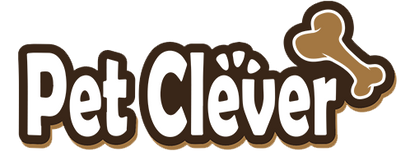Are Dairy Products Safe for Pets?

Can Pets Have Dairy Products?
A few dogs have no issues processing milk and dairy items. However, others experience intense intestinal trouble, similar to gas, looseness of the bowels or retching, at whatever point they devour these sorts of nourishments. Everything boils down to how your canine handles the lactose found in milk.
With regards to extraordinary treats, it appears that felines normally incline toward milk the manner in which canines take to bones and mice go for cheddar.
In any case, while the facts confirm that numerous kitties love to drink up the white stuff, incidentally, they can't generally effectively process milk without becoming ill.
Dog’s Reaction to Dairy Products
Milk is a protected treat in little amounts. A couple of tablespoons of cow's milk or goat's milk on a periodic premise can be a decent reward for your pooch without the symptoms of overindulgence. However, you ought to most likely hold off on offering your pooch a whole bowl in one sitting, as it can cause unsavory responses, including the runs, retching, and free stools.
Without lactase, a canine essentially can't process dairy items. What's more, intense intestinal manifestations almost consistently emerge.
Presently, this powerlessness to process milk is famously known as lactose intolerant. Furthermore, it's a similar lactose bigotry such a significant number of people experience the ill effects of consistently. In the event that you've at any point seen your pooch will in general create gas or free stools in the wake of having milk, there's a decent possibility your pet might experience the ill effects of this condition.
The refreshment is high in fat and characteristic sugars, which is another motivation to sustain it to your little guy in little amounts. A lot of fat in your pooch's eating routine can prompt stoutness and pancreatitis, which are not kidding conditions.
Cat’s Reaction to Dairy Products
When you consider giving felines milk, you're likely thinking about cow's milk. This kind of milk isn't solid for most felines, particularly if it's replacing a fair supper. Felines don't pick up anything healthfully from milk that is absent in a well-adjusted business feline nourishment diet.
Despite the fact that your feline may appreciate drinking milk, it isn't really bravo. Felines experience difficulty processing the lactose in milk, which can cause a furious stomach or looseness of the bowels. Most felines are possibly presented to lactose from their mom's milk when they are little cats.
Newly born kittens drink their mom's milk until the mother progressively weans them as ahead of schedule as about a month old. Regularly, cats are eating strong nourishments by eight to ten weeks old. Many felines lose the capacity to process it subsequent to being weaned.
Much the same as people, utilization of raw eggs can prompt salmonella or E. coli harming in felines. Raw eggs likewise contain a compound that can prompt skin and coat issues.
Last Thoughts
Albeit the two canines and felines can be lactose intolerant, felines are bound to encounter issues due to their different body structure. Then again, while dairy intolerant is normal in grown-up dogs, it doesn't occur in each pooch. Since they can't separate the lactose in dairy items, this leaves the lactose sugar in their framework for the microscopic organisms in their digestion tracts to age. The matured microscopic organisms are what give our pets intestinal spasms and looseness of the bowels.
Whether you need a dog bowl or a cat fountain, we have everything to help you care for your pet.
Leave a comment
Comments will be approved before showing up.

